
President Nguyen Xuan Phuc wraps up State visit to RoK
Latest
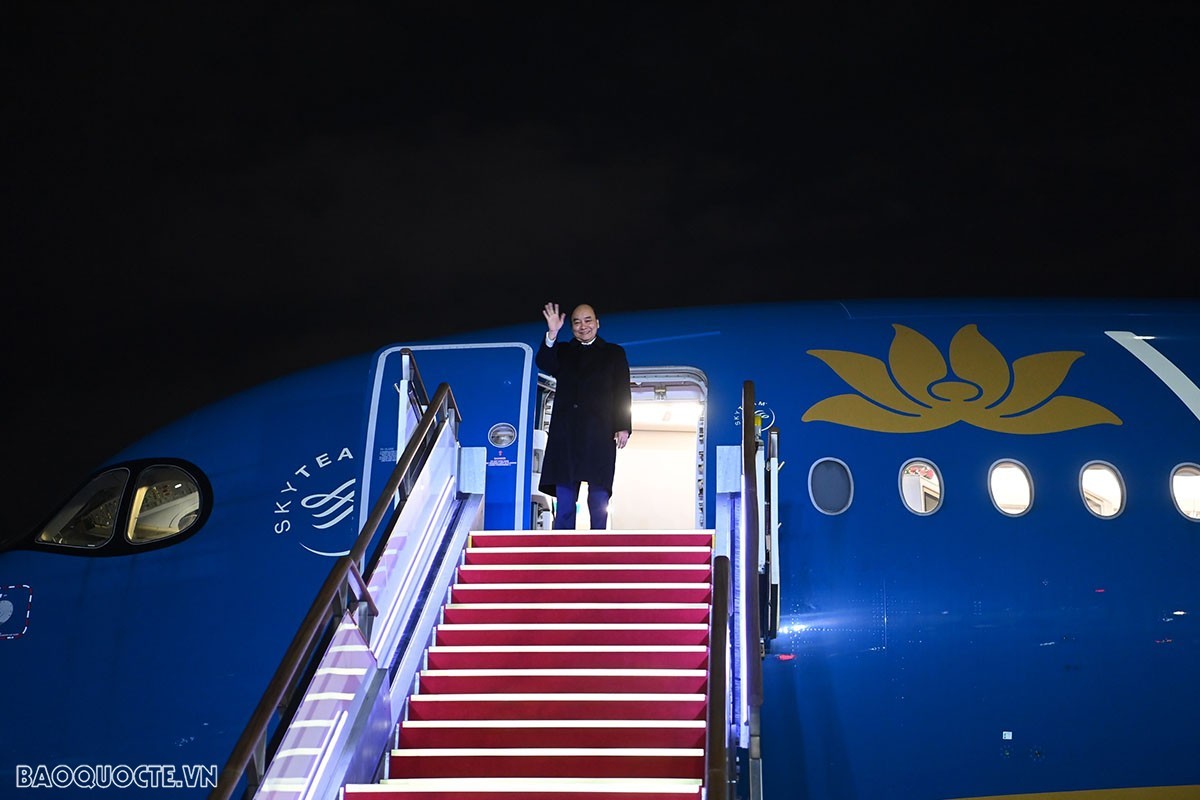 |
| President Nguyen Xuan Phuc left Seoul, successfully concluding his State visit to the Republic of Korea. (Photo: WVR/Hong Nguyen) |
This was the first visit to the RoK by Phuc in his capacity as President of Vietnam, and also the first by a Vietnamese President over the past 11 years, and the highest-level visit by Vietnamese Party and State leaders to the RoK since the East Asian country had a new President.
Notably, President Phuc was the first foreign high-ranking leader to pay a State visit to the RoK since President Yoon took office in May this year.
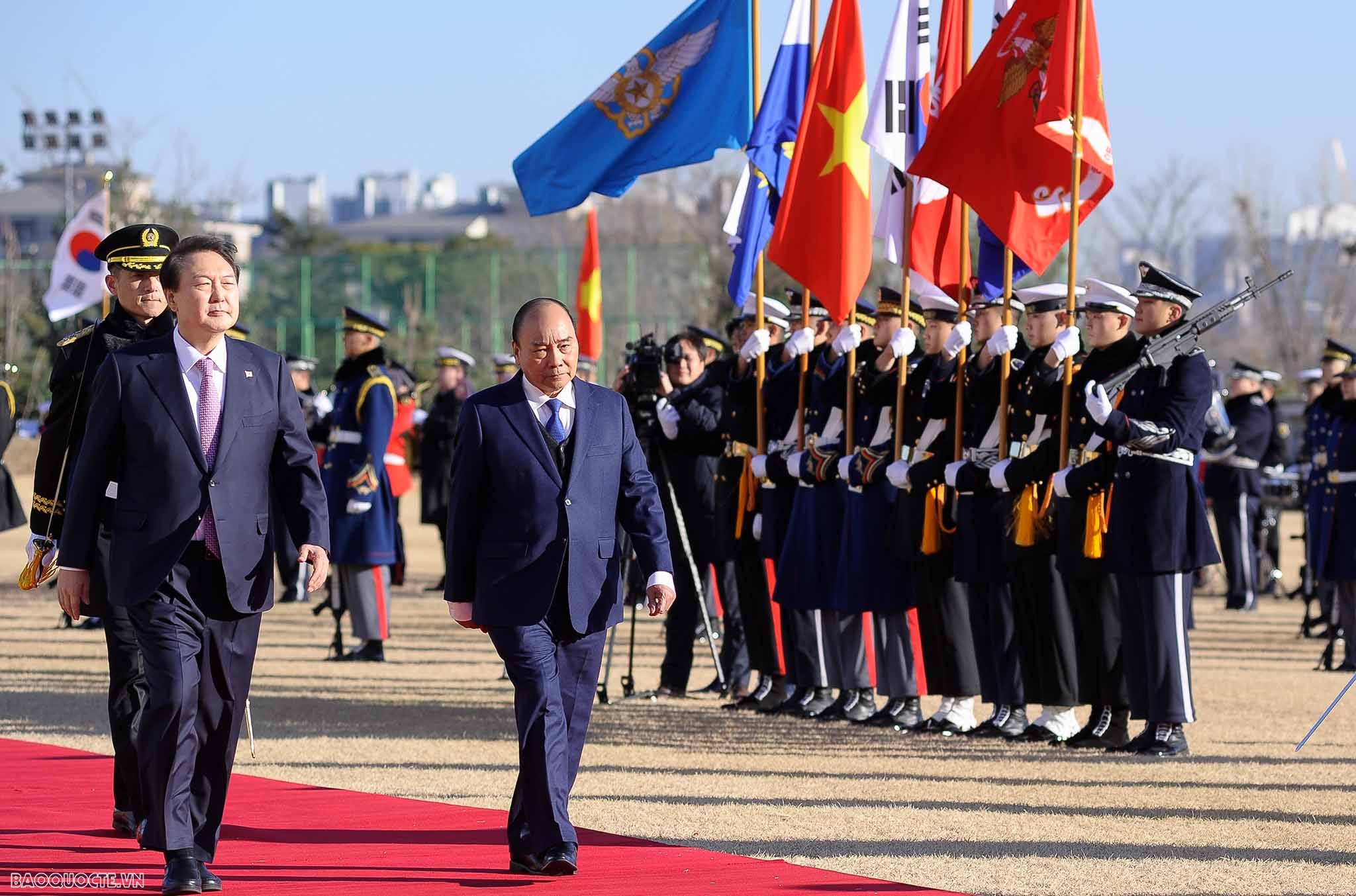 |
| President Nguyen Xuan Phuc and President of the Republic of Korea Yoon Suk Yeol at the welcome ceremony. (Photo: WVR/Nguyen Hong) |
During the visit, the two leaders agreed to issue a Joint Statement on upgrading the Vietnam-RoK relationship to a comprehensive strategic partnership, opening up a new chapter for the bilateral ties, with a brighter future for both countries and peoples. They agreed to promote the bilateral trade in a stable and balanced manner, remain leading trade partners of each other, and raise the two-way trade revenue to 100 billion USD by 2023 and 150 billion USD by 2030.
They also witnessed the signing of many cooperation documents between ministries, agencies, localities and businesses of the two countries.
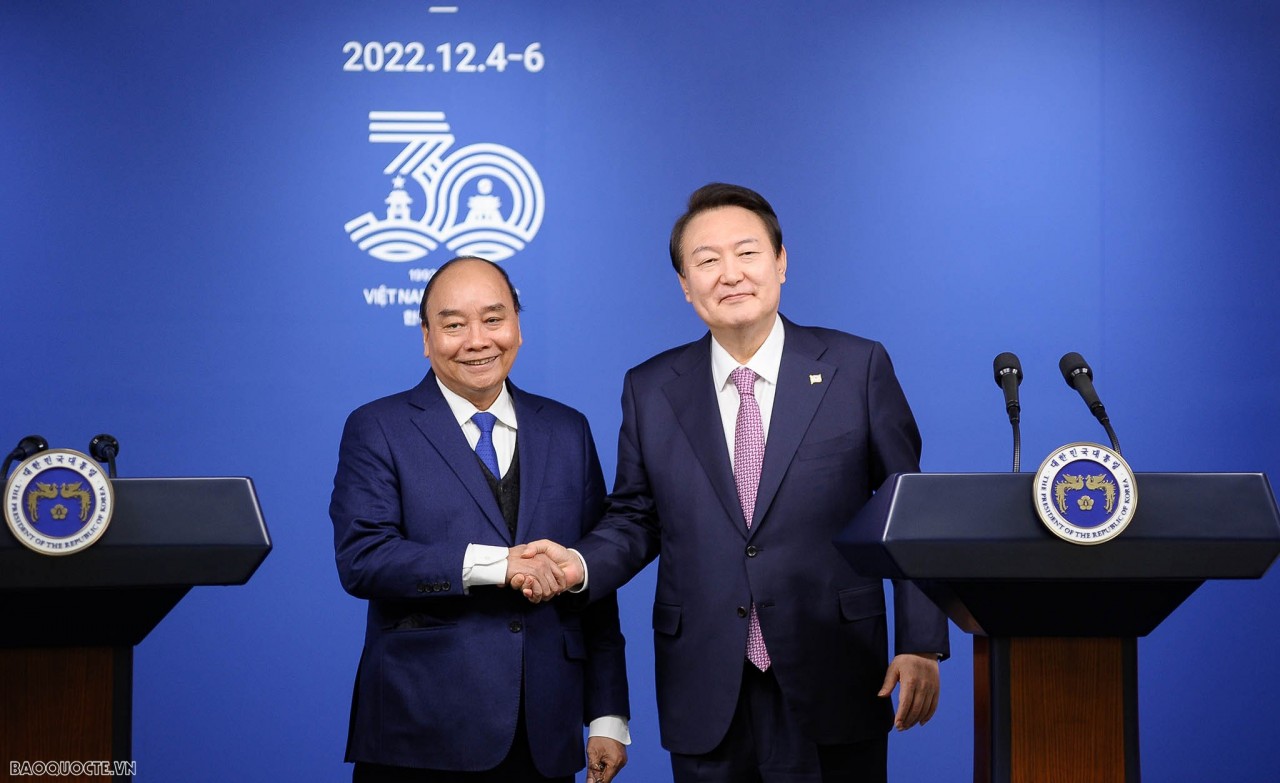 |
| President Nguyen Xuan Phuc wraps up State visit to RoK: President Nguyen Xuan Phuc and President of the Republic of Korea Yoon Suk Yeol at the press conference to announce that Vietnam and Korea have become comprehensive strategic partnership. (Photo: WVR/Hong Nguyen) |
At the meetings with RoK Prime Minister Han Duck-soo and Speaker of the RoK National Assembly Kim Jin-pyo, the leaders compared notes on cooperation orientations within the framework of the comprehensive strategic partnership in all fields, and expressed their resolve to deepen the bilateral ties.
The Vietnamese President had 12 meetings with nearly 30 leaders of Korean groups, banks, financial organisations and investors that are investing tens of billions of USD in the Southeast Asian nation.
The leader affirmed that the upgrading of the relationship helps to raise the mutual political trust and enhance the cooperation framework, thus creating a firm platform for the two countries’ enterprises to run long-term business with a larger scale and gain more successes in the respective markets.
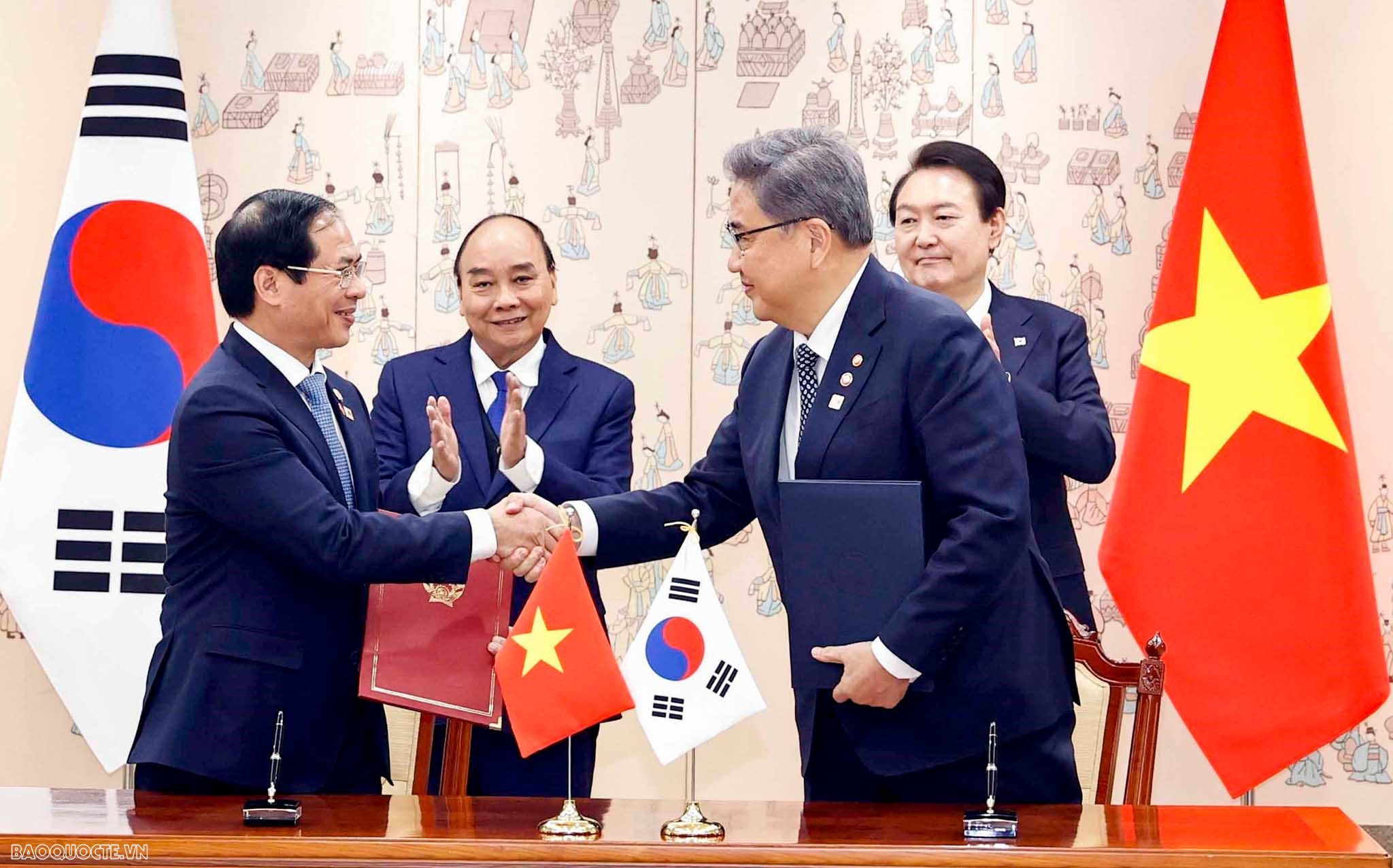 |
| President Nguyen Xuan Phuc and President of the Republic of Korea Yoon Suk Yeol witnessed the signing of of many cooperation documents. (Photo: WVR/Nguyen Hong) |
A highlight of the visit was the Vietnam-RoK business forum with the participation of more than 500 delegates and businesspeople from the two countries.
In his remarks, President Phuc stressed that Vietnam always creates favourable conditions for Korean firms to operate effectively and sustainably in the country.
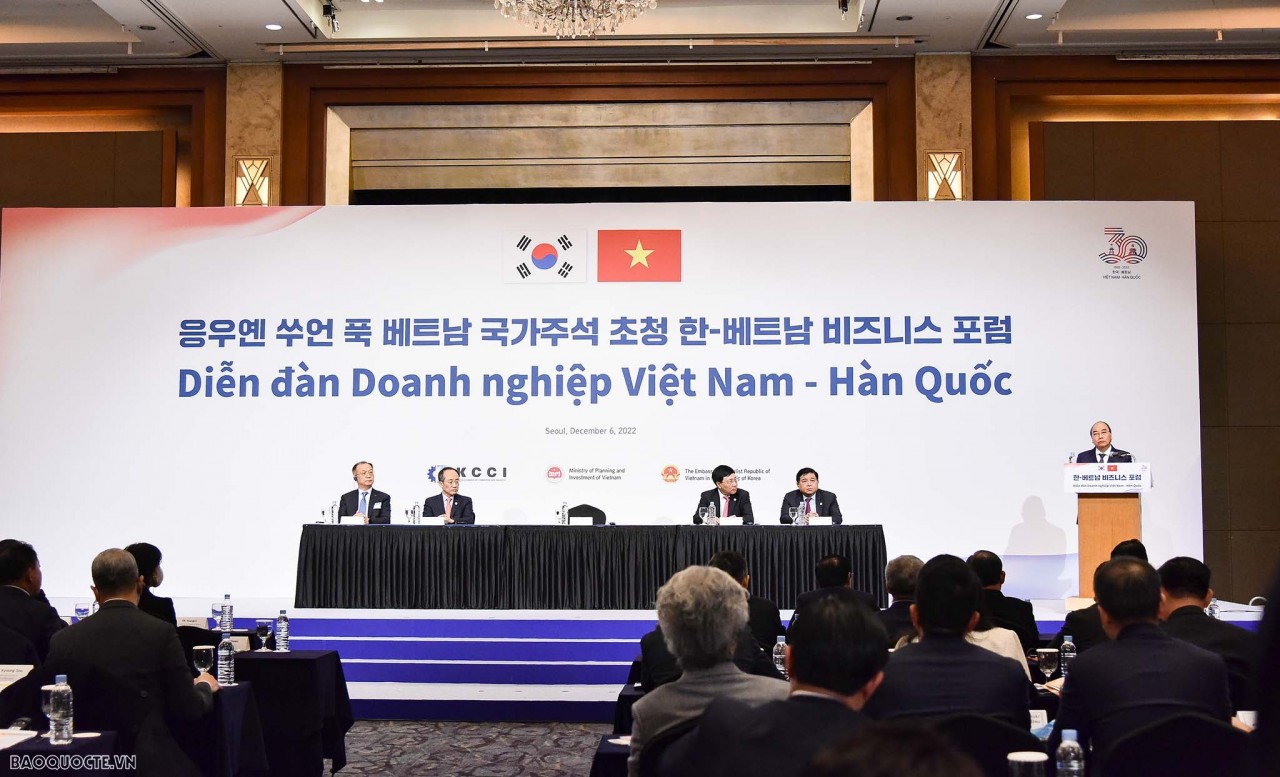 |
| President Nguyen Xuan Phuc speaks at the Vietnam-Korea Business Forum. (Photo: WVR/Hong Nguyen) |
Apart from agreements reached earlier, as many as 15 others were officially inked at the forum. The accumulative value of the deals, along with commitments and investment proposals made during the President’s visit, amounted to nearly 15 billion USD.
During the visit, the President met representatives of the Vietnamese community in the RoK and hosted receptions for representatives from cultural and friendship organisations that play an important role in promoting cooperation and people-to-people exchange between the two countries.
He also visited a Vietnamese-Korean multicultural family and held a working session with the authorities of Gwangju city in Gyeonggi province, among other activities.
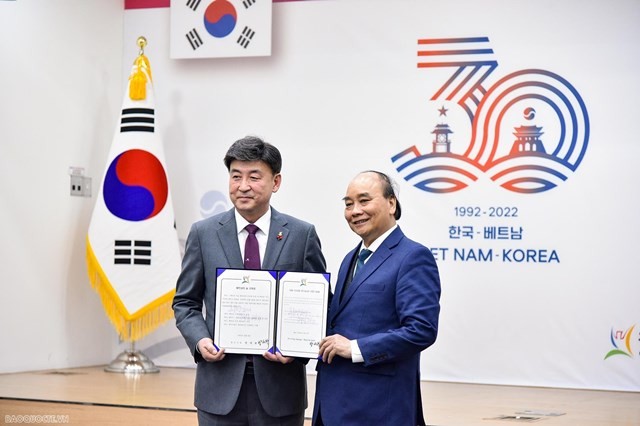 |
| President Nguyen Xuan Phuc and Gwangju Mayor Bang Se-hwan at the ceremony to announce December 6 as the annual Vietnam day of Gwangju city. (Photo: Hong Nguyen) |
With nearly 30 activities within three days, the success of the President’s visit reaffirmed Vietnam’s foreign policy of independence, self-reliance, peace, cooperation, development, and the diversification and multilateralisation of relations.













